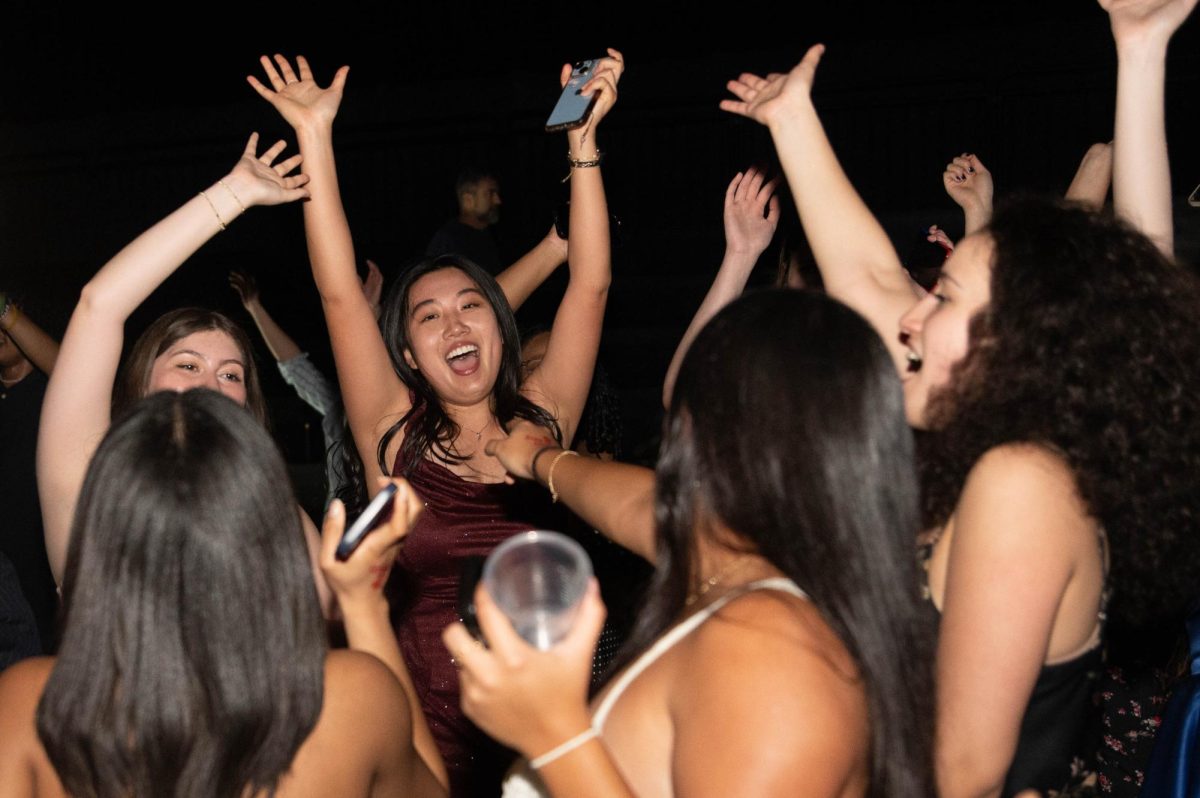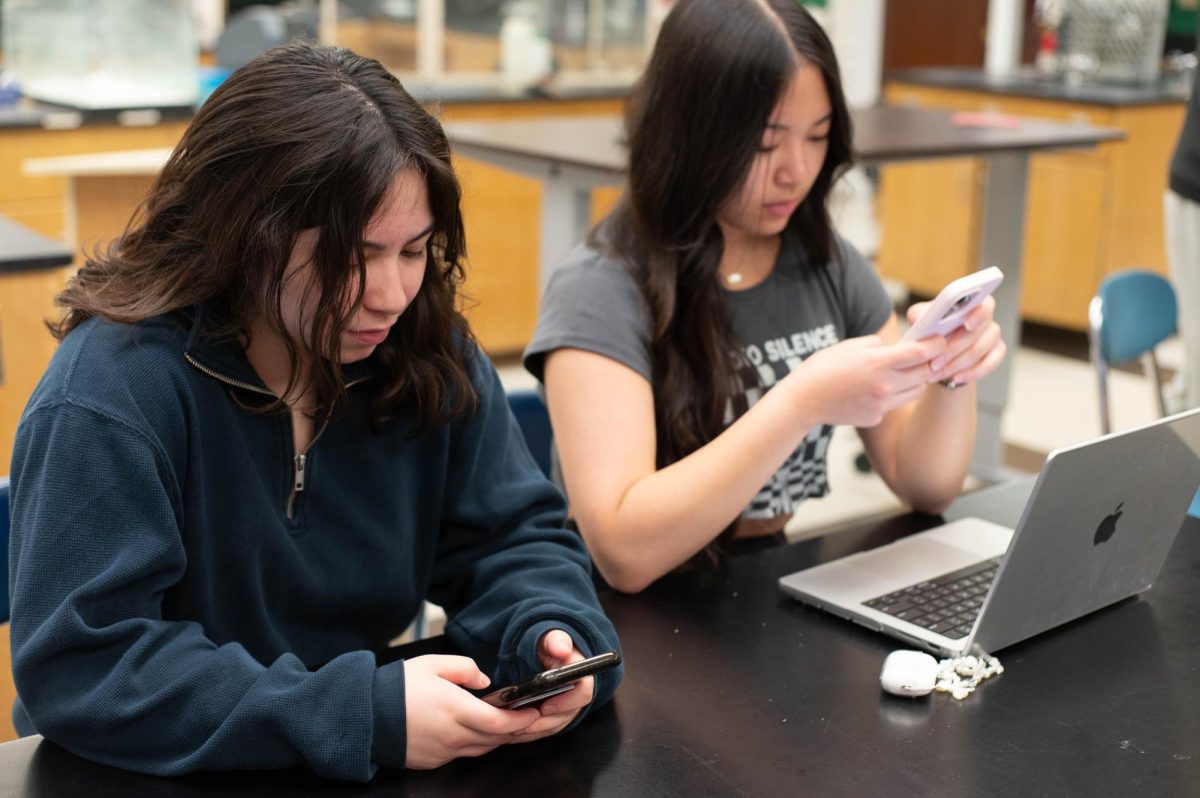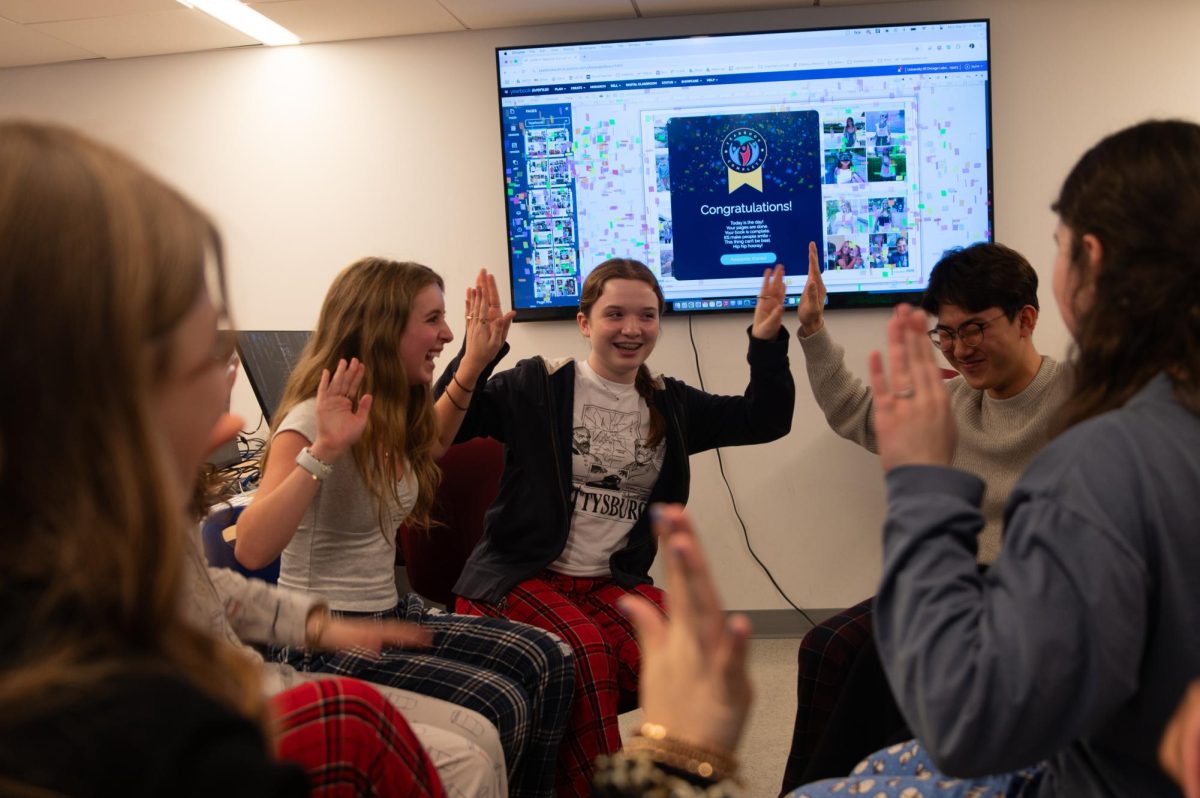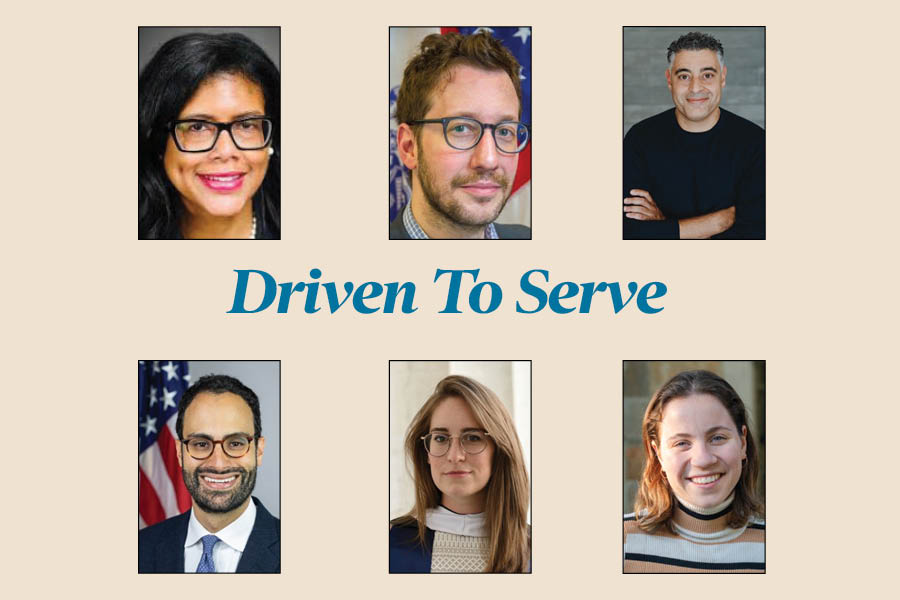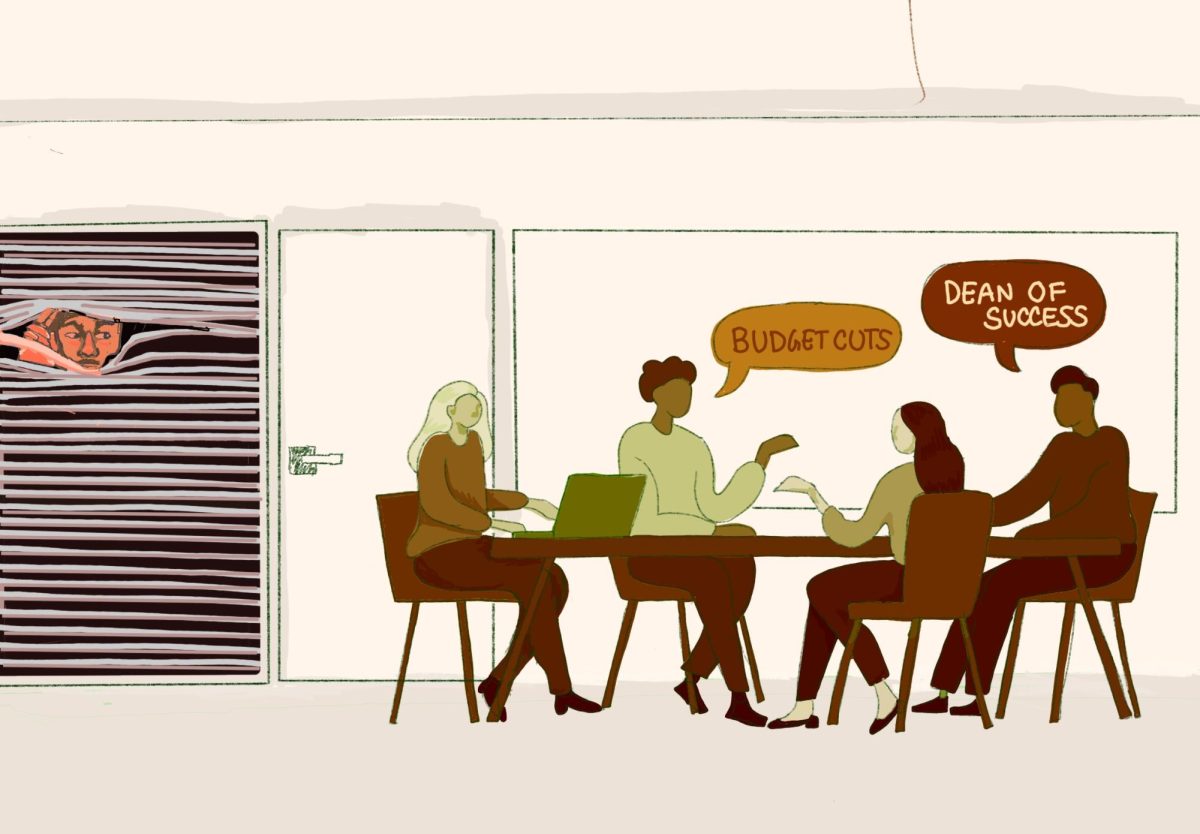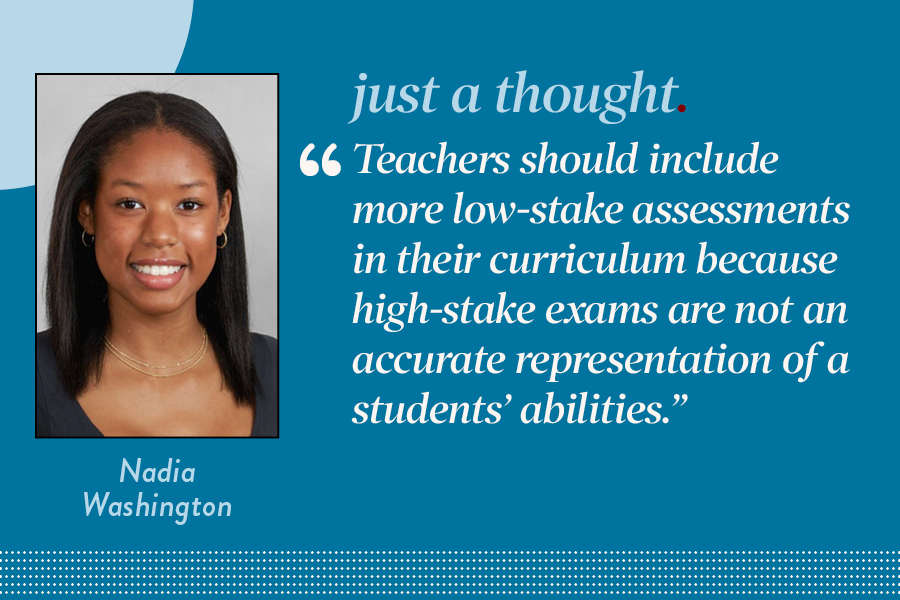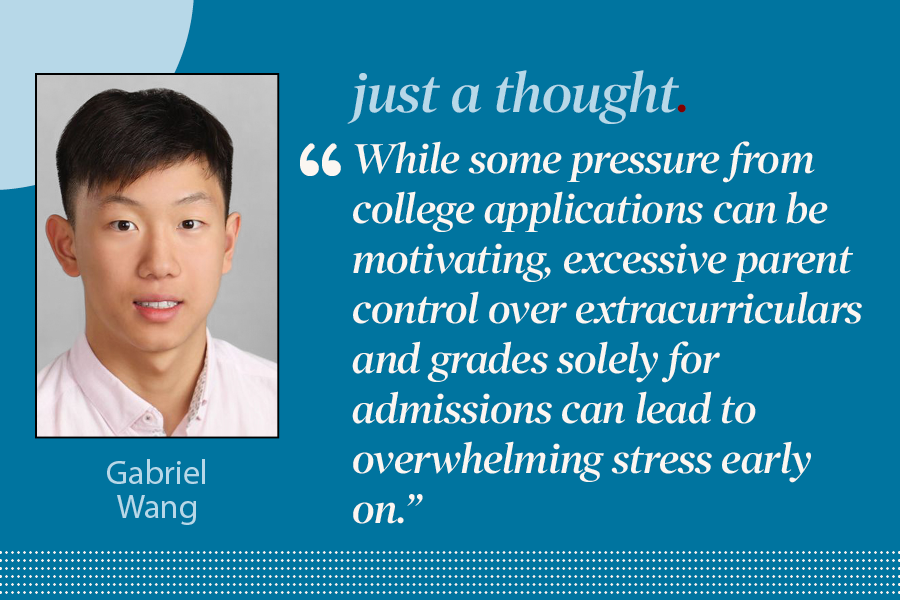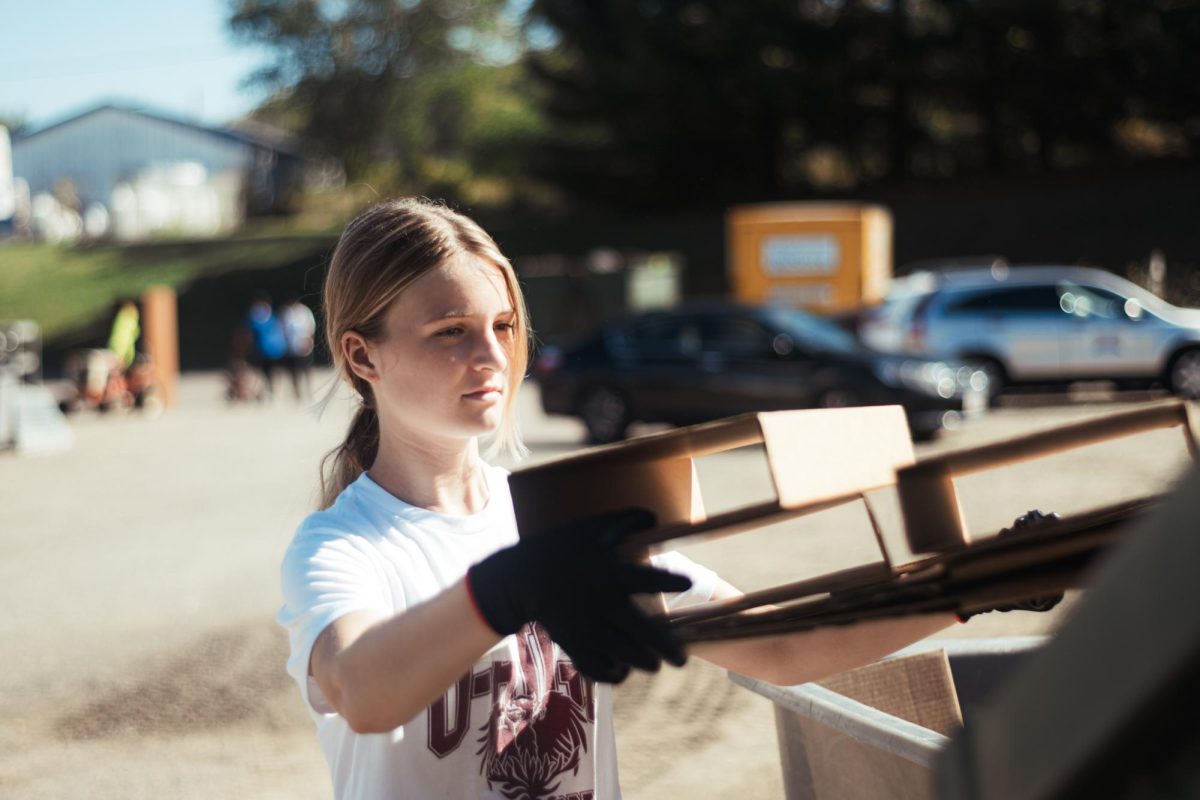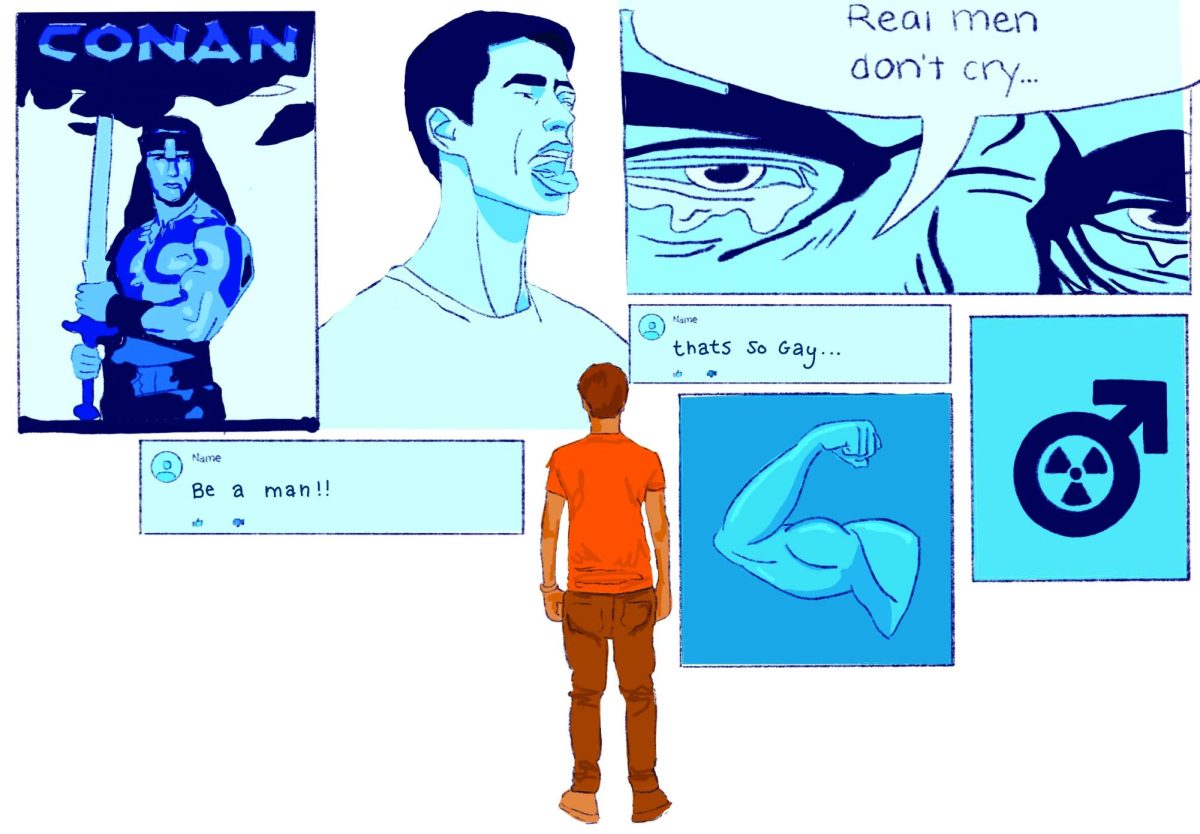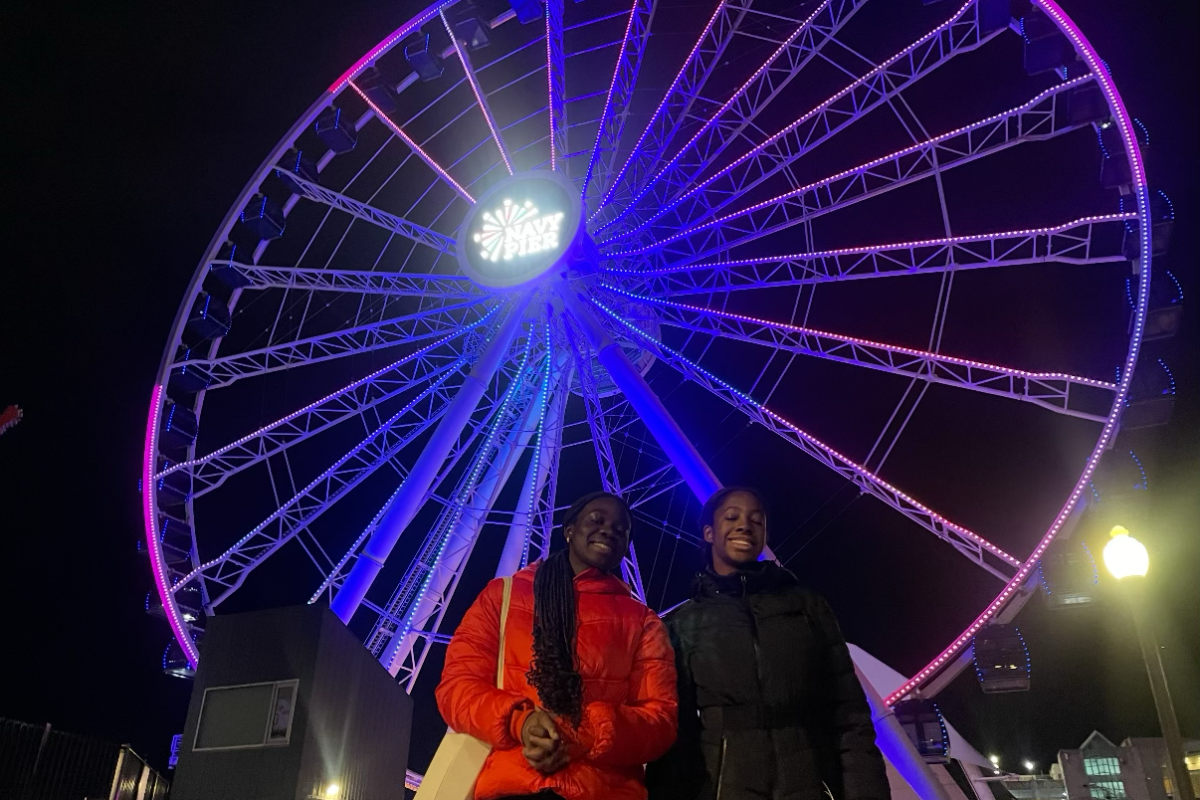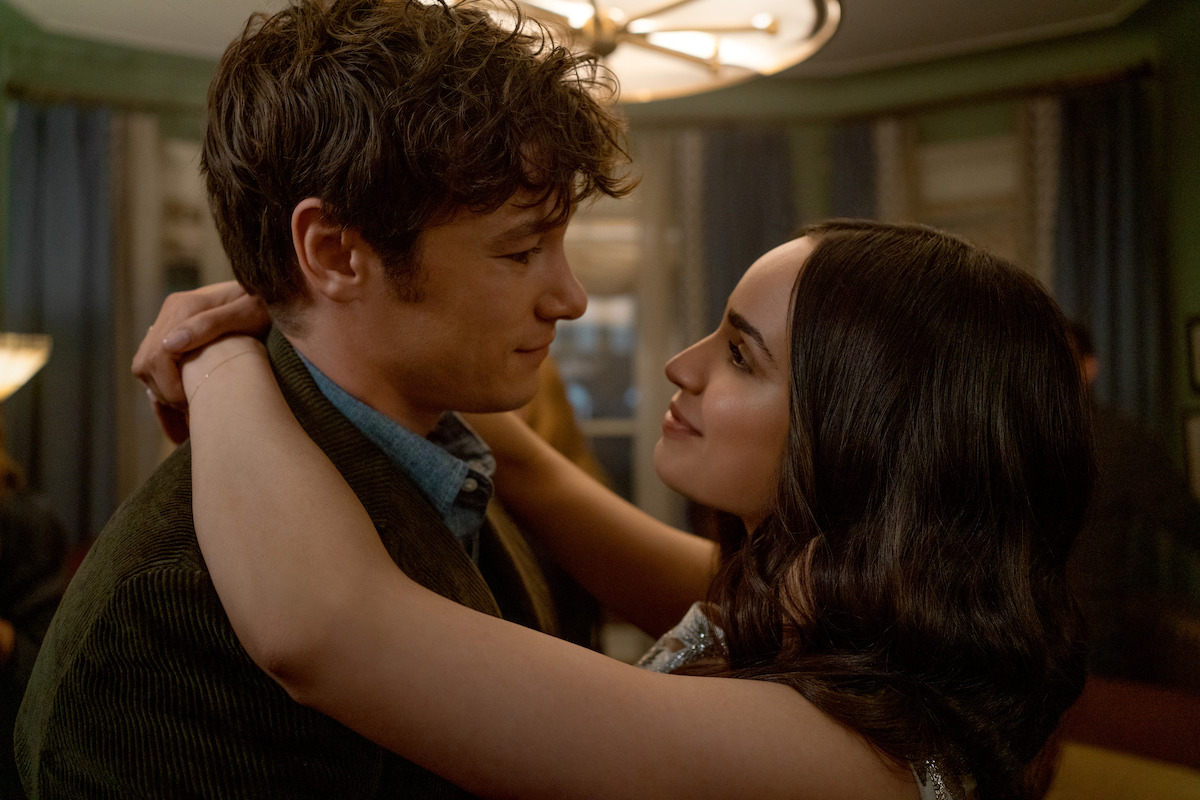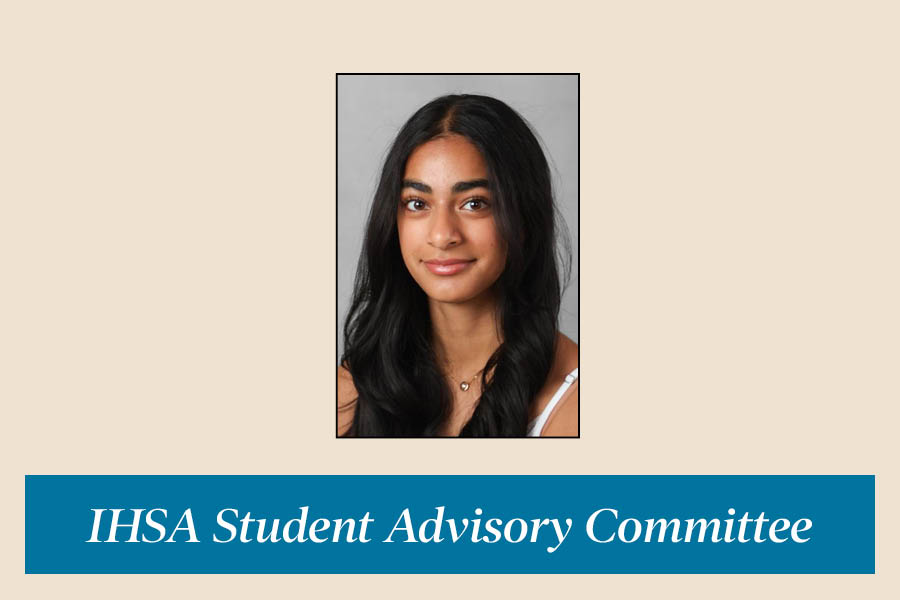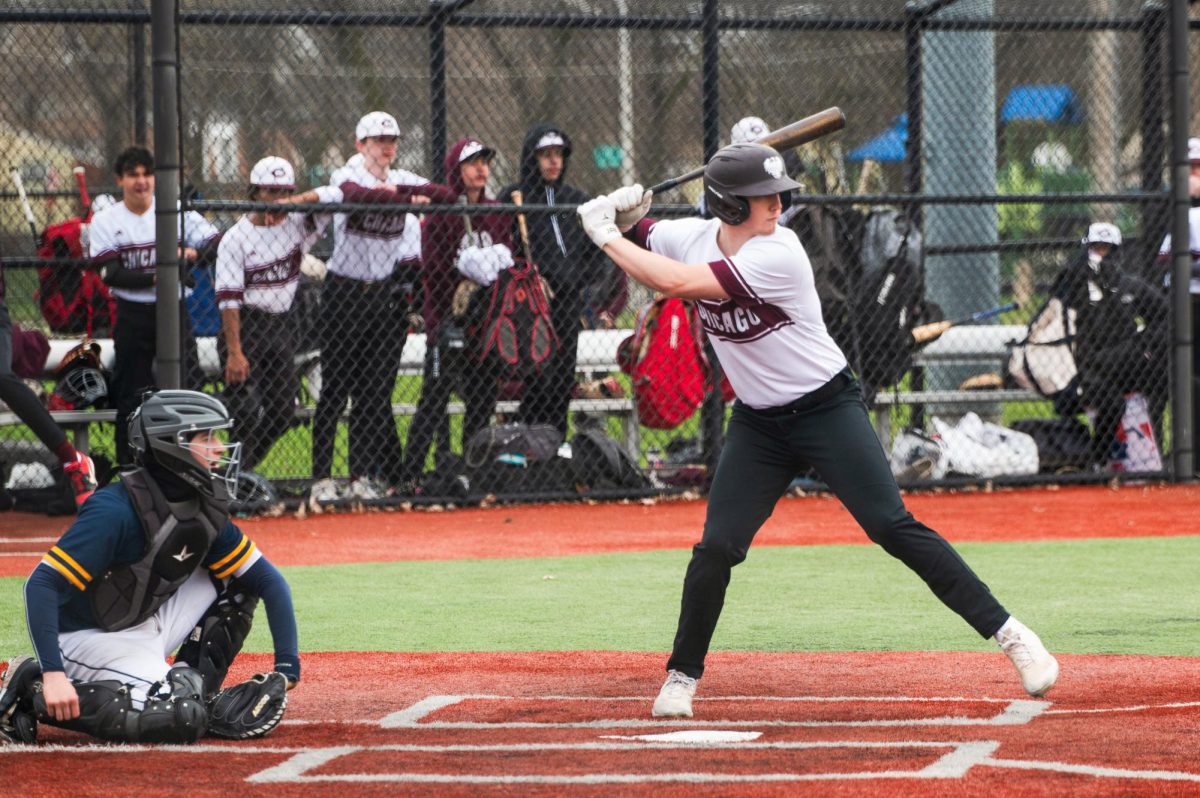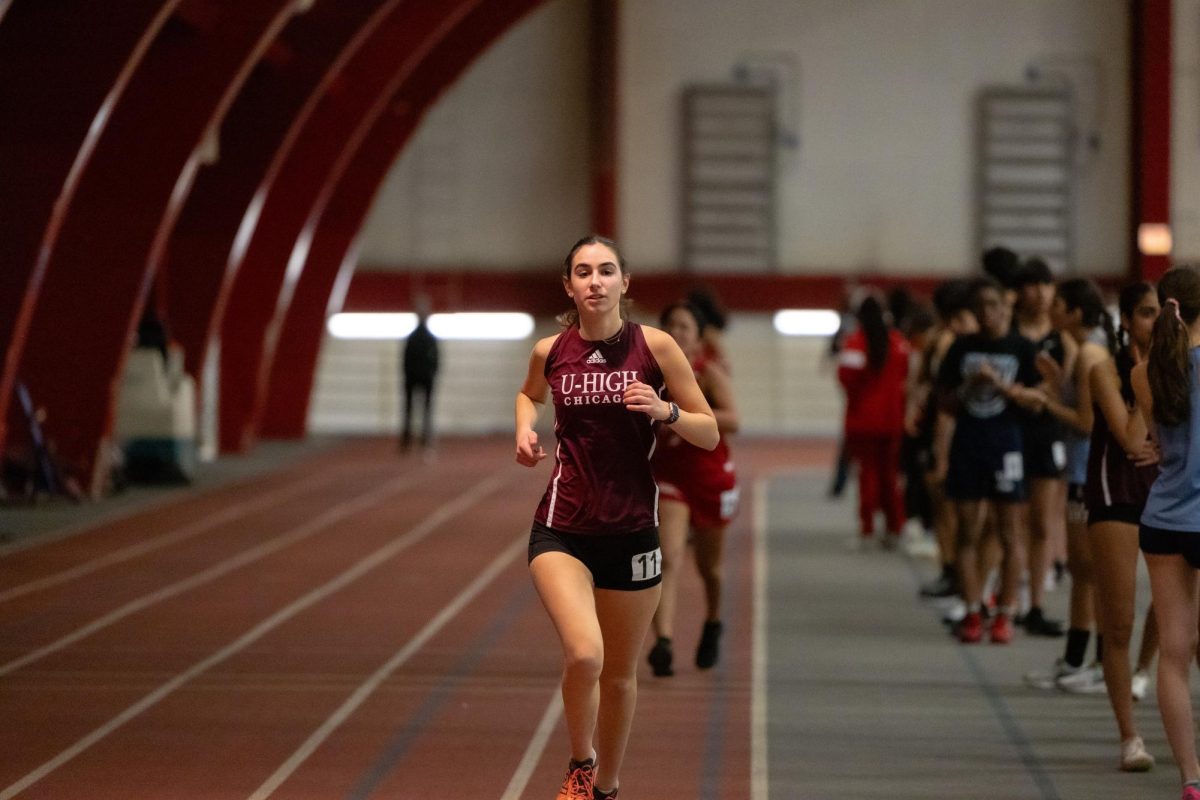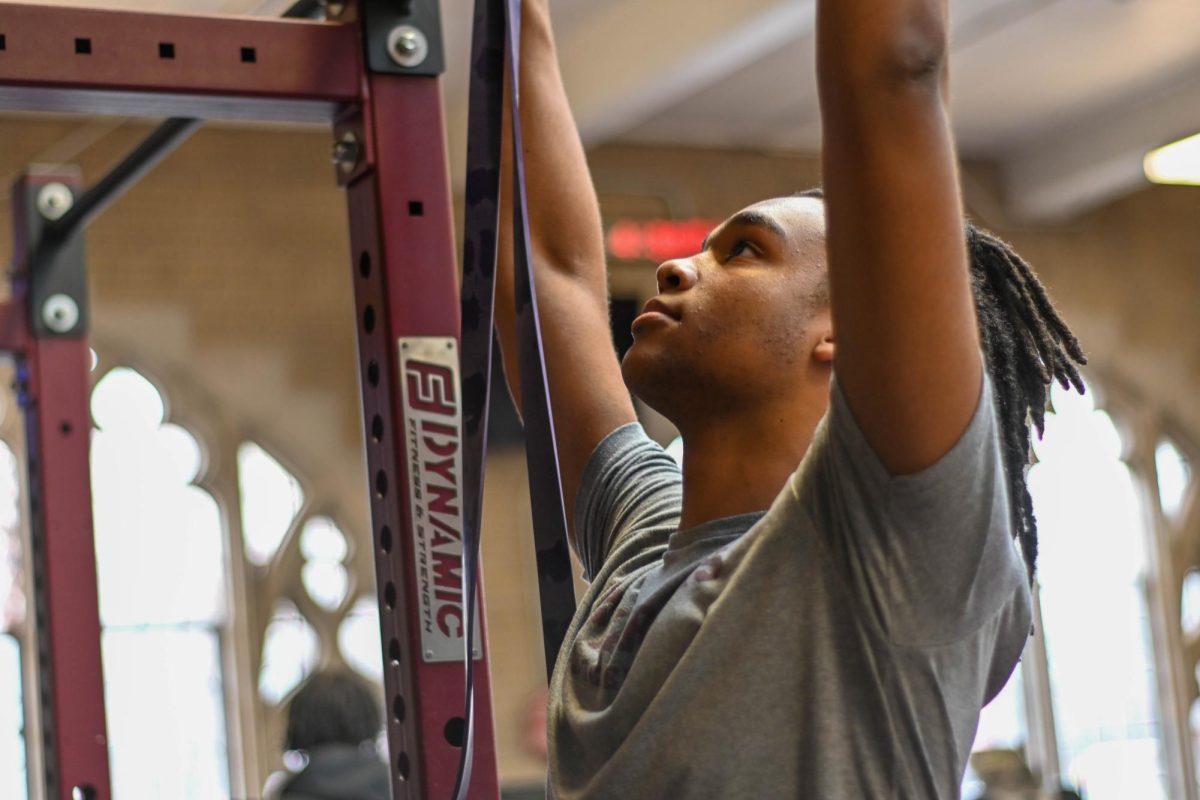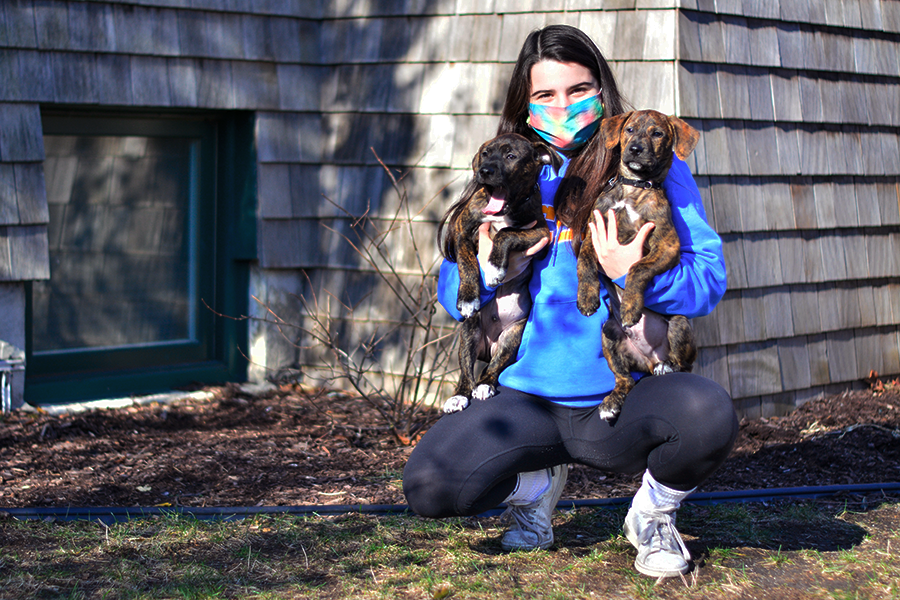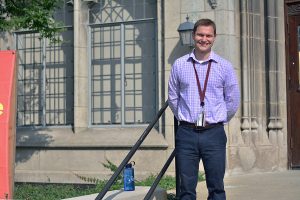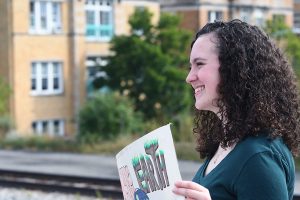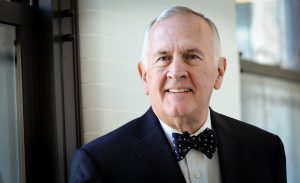After 23 foster animals, Sophie Raphael develops deep relationships, a dedication to service
Sophie poses in front of her house with her two current foster dogs. Having fostered 10 kittens and 13 dogs from PAWS Chicago, Sophie developed deep relationships with her animals and learned how it feels to make an impact on others through service.
December 7, 2020
At 5 a.m., on Nov. 30, Sophie Raphael opens the door to let out two energy-filled foster puppies, Starsky and Hutch. They run outside to play in the fresh snow for the first time in their lives. Sophie watches the puppies’ excitement with affection, and it is enough to make her forget the early hour.
For over three years, Sophie, a senior, has given a home to puppies like Starsky and Hutch to grow up in. Having fostered 10 kittens and 13 dogs from PAWS Chicago, Sophie developed deep relationships with her animals and learned how it feels to make an impact on others through service.
Sophie’s family began fostering almost a decade ago, when she was in third grade, but stopped when the family adopted their own second foster dog. In 2017, the beginning of her freshman year, Sophie’s lifelong obsession with dogs compelled her to ask about fostering again.
“My parents had said, ‘You can foster, but it has to be your own thing,’ because puppies are a lot of work,” Sophie said. “That was when I really started to do it on my own.”
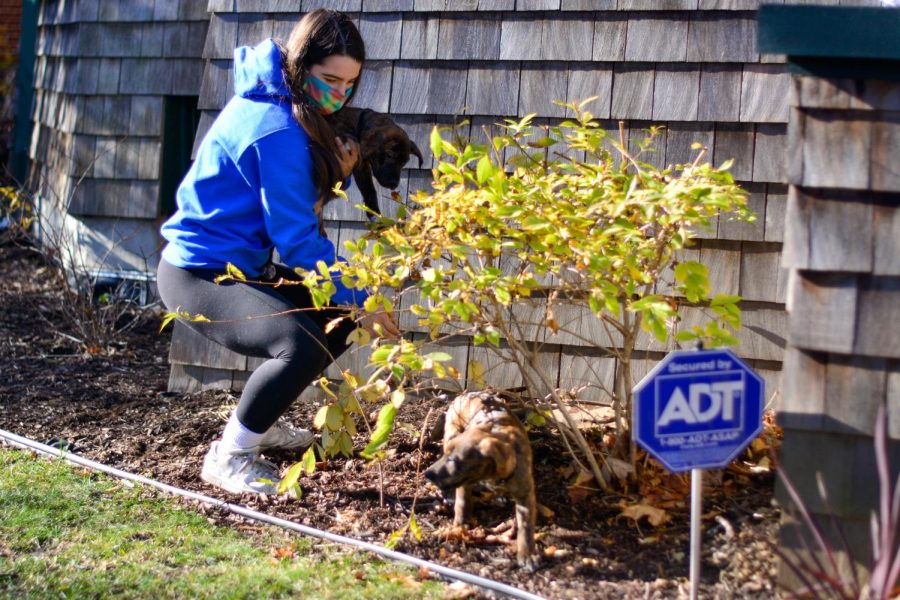
When she begins to foster a pet, Sophie picks up the animal from a PAWS Chicago medical center in Pilsen, where she gets young foster animals who often have medical needs. The foster animals tend to stay with Sophie in her Hyde Park home for about three weeks, though they can spend up to three months in a foster home depending on the severity of their medical conditions.
During that time, Sophie works a lot with the animals.
“I would go home during all my free periods to let the puppies out, because they can’t really stay in their crates for too long,” Sophie said. She needs to constantly watch the puppies, clean up after them and give them medicine.
Senior Emelia Piane, one of Sophie’s good friends, has witnessed how much time Sophie spends caring for her animals.
“There have definitely been times where she says, ‘Oh, I can’t go, I have to watch the pets,’” Emelia said. “Sophie really loves them, but they’re a lot of work for sure.”
After fostering for a while, Sophie has found the puppies don’t like to be alone.
“I’m such a softy that it’s hard to crate-train them because I hate hearing them cry,” Sophie said, “so I spend like 24 hours with them pretty much – it’s just like a full-time job.”
Despite the demanding task, Sophie really values the bond she has created with them.
“My favorite thing, if they’re either really sick or shy, is just seeing them get better and come out of their shells,” Sophie said. “It just feels so good to like, you know, nurse them back to health when we see them grow into big, happy cats and dogs.”
The emotional bond, however, makes giving up the animals the most difficult part of the process.
“The longer you have them, the harder it is to say goodbye,” Sophie said about one dog she had for three months. “I feel so much guilt, dropping them off at the medical center because I can’t explain to them, ‘I’m doing this because you need to go to a home forever.’ I feel like they just think I’ve abandoned them, which is so hard.”
Sophie is thankful a few of her foster animals were adopted by people in Hyde Park like junior Annika Ludwig, who adopted Iko, a German shepherd hound dog mix Sophie fostered in April. Knowing she can see them often makes giving them up a lot easier, Sophie said.
“Sophie walks up and you can see Iko’s tail just starts to go crazy, and she gets so excited,” Annika said. “She just jumps all over Sophie and licks her. It’s a pretty sweet reunion whenever they see each other.”
Ultimately, fostering dogs has given Sophie a greater appreciation for service. She makes a connection between her work fostering and volunteering at La Rabida Children’s Hospital, a specialty hospital for children with lifelong medical conditions.
“It makes me sad sometimes, kind of in the same way that it can be heartbreaking to be at La Rabida,” Sophie said. “But I’ve realized that I’m doing something good for them. That makes it easier. It makes it more valuable. It would be hard to let yourself do that if you don’t see the benefit or the reward that you’re giving to others.”



